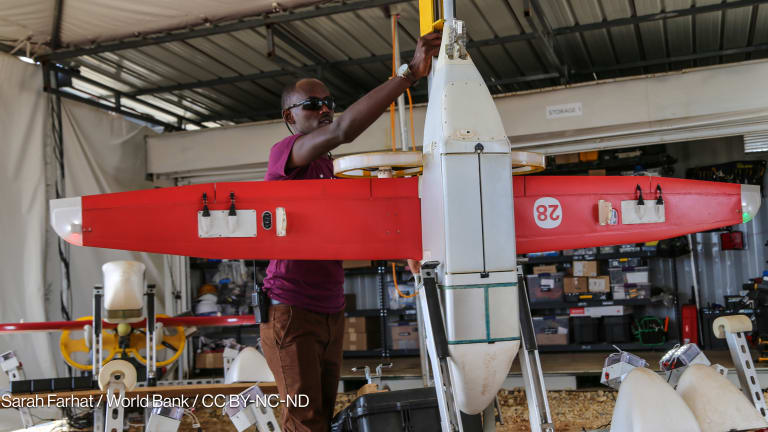
WASHINGTON — Speaking to United States lawmakers in a congressional hearing on Thursday, U.S. Global AIDS Coordinator Deborah Birx questioned whether the $3 billion spent on supply chain technical assistance since 2009 had been used effectively.
“When you talk to the Global Fund, when you talk to the field, the one comment that continues to come up is the integrity of the supply chain. So, there is an issue there that persists, despite a significant investment,” Birx told a House of Representatives subcommittee, which had gathered to ask questions about the U.S. Agency for International Development’s global health supply chain project.
Birx, who has led the U.S. President’s Emergency Plan for AIDS Relief since the Obama administration, said that the congressional inquiry into USAID’s $9.5 billion project — being implemented by Chemonics International — has, “asked us to step back, to really say … why, 15 years in, are we talking about glitches in the system?”
“We really need to look at these $3 billion that we’ve invested just since 2009 and say, are we investing correctly with technical assistance to really create a system that has the resilience to meet the demands of the future? Because with that level of investment over this amount of time, we would have a different expectation,” she said.
President Donald Trump’s administration has called for an $800 million reduction in PEPFAR’s budget, though the U.S. Congress has rejected this position and upheld funding for the initiative so far. Birx responded to questions about whether PEPFAR can be successful with a significantly lower budget by saying the initiative needs to work more efficiently and effectively with whatever money it has.
Birx suggested that PEPFAR is currently reviewing how the U.S. government provides global health supply chain technical assistance and whether the approach needs to change.
“Maybe our conceptual framework about how to support a supply chain may be old school and maybe we have to look at this differently. We are working with USAID on each of those issues,” she said.
Congress’s hearing was prompted by findings, first reported by Devex, that under Chemonics’ management, on-time delivery rates for the global health supply chain had plummeted.
USAID’s target for on-time, in-full delivery is 80 percent. At its lowest, in early 2017, the global health supply chain was functioning at 7 percent on-time, in-full delivery. Birx challenged “everyone on PEPFAR” to remember that the initiative holds its partner countries accountable for very high-performance metrics too, so there is little excuse for the drug supply chain.
“We’re asking countries to have 90 percent of their populations aware of their HIV status,” Birx said.
“If we can expect that 90 percent of children know their status, 90 percent of teenagers, and 90 percent of adults, we need to expect that we’re all moving with that same level.”
“Is it hard to work for PEPFAR? I think it is very hard to work for PEPFAR. The demands, the fact that it is absolutely life-saving and it’s the difference between a mother being diagnosed and put on treatment that day or not,” she said, noting that in the last three to six months she has seen “a real adjustment in the speed of work.”
“We continue to move at a very aggressive pace, and I think everyone on PEPFAR needs to continue to move at that aggressive pace [too],” Birx added.








